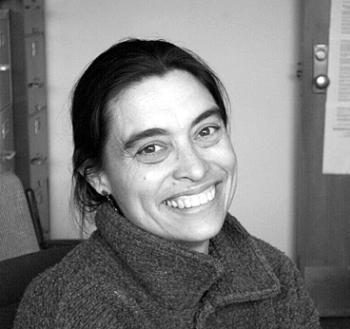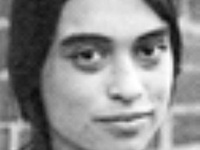In 1987 in South Africa, Gay W. Seidman ’78 confronted riot police and snarling dogs blocking the entrance to the headquarters of the Congress of South African Trade Unions. The University of California at Berkeley graduate student, already nervous about doing research on the South African labor movement under the noses of the oppressive apartheid regime, turned the corner and watched through a fog of tear gas as police arrested and beat the workers inside. She, too, was almost apprehended before the officers relented at the behest of a lawyer for the labor movement. As she puts it, her nearly disastrous encounter with the South African authorities is “a great fieldwork story.”
But the brutal crackdown that Seidman witnessed that day in South Africa is not the only story she has to tell. She has been an observer, researcher and reporter her whole life. She grew up in western Africa, served as president of The Crimson, sat on Harvard’s Board of Overseers, wrote textbooks for a newly-independent Zimbabwe, earned a handful of graduate degrees from Berkeley—and at this time last week, she was conducting field research in Guatemala.
Her latest project, which brought her to Central America, is a comparative study of labor monitoring procedures in developing countries. Yet Seidman, who now teaches sociology at the University of Wisconsin at Madison, still jokingly insists that she is a “completely boring Midwestern academic.”
Seidman spent about half of her childhood in Ghana, Nigeria, Tanzania and Zambia with her family before heading off to boarding school in the United States with her twin sister, Neva Seidman Makgetla ’78.
When she got to Harvard, she became a social studies concentrator and began spending a great deal of time in The Crimson’s newsroom. Seidman explained that the encouragement of then-Managing Editor Jeff Leonard ’76 and others on the staff made it easy to “spend more time [at The Crimson] than was probably appropriate.”
By her sophomore year, Seidman was spending dozens of hours a week at 14 Plympton Street.
Former Business Manager William L. Pollack ’78 recalls, “She was one of those people who lived at The Crimson…I never quite figured out how she did it.”
“I majored in The Crimson, actually,” Seidman jokes. In November 1976, she was designated president of the 104th Guard of The Harvard Crimson—the first woman to occupy the position.
As president of The Crimson, Seidman loved writing, managing the presses and “hanging out until sunrise.”
“It was a way to make Harvard much more…autonomous. I had a lot more control over what I got to do,” she says.
Ensconced behind the brick walls of 14 Plympton, Seidman also sought to cover the growing South African divestment movement on campus.
“I thought that [the anti-apartheid story] would be bigger earlier [than most],” she explains. “This was really going to matter.”
Under Seidman’s leadership, The Crimson did not miss the opportunity to offer early reports on the national movement. Though her sister had been involved with anti-apartheid causes before coming to Harvard, Seidman considered it simply good news judgment to cover the movement early and often—not undue editorial control. But Seidman’s peripheral interest in the South African divestment campaign would grow after she graduated summa cum laude from the College.
“I thought I wanted to be a journalist,” she says, “But I couldn’t imagine…being on a police beat somewhere.”
She went to the Alumni Office to browse for job opportunities and ended up volunteering for the U.N. Food and Agriculture Organization in Swaziland, a small, mountainous country in southeastern Africa bordered by South Africa and Mozambique.
Read more in News
Pataki: 'Yale is Going to Crush Harvard'














